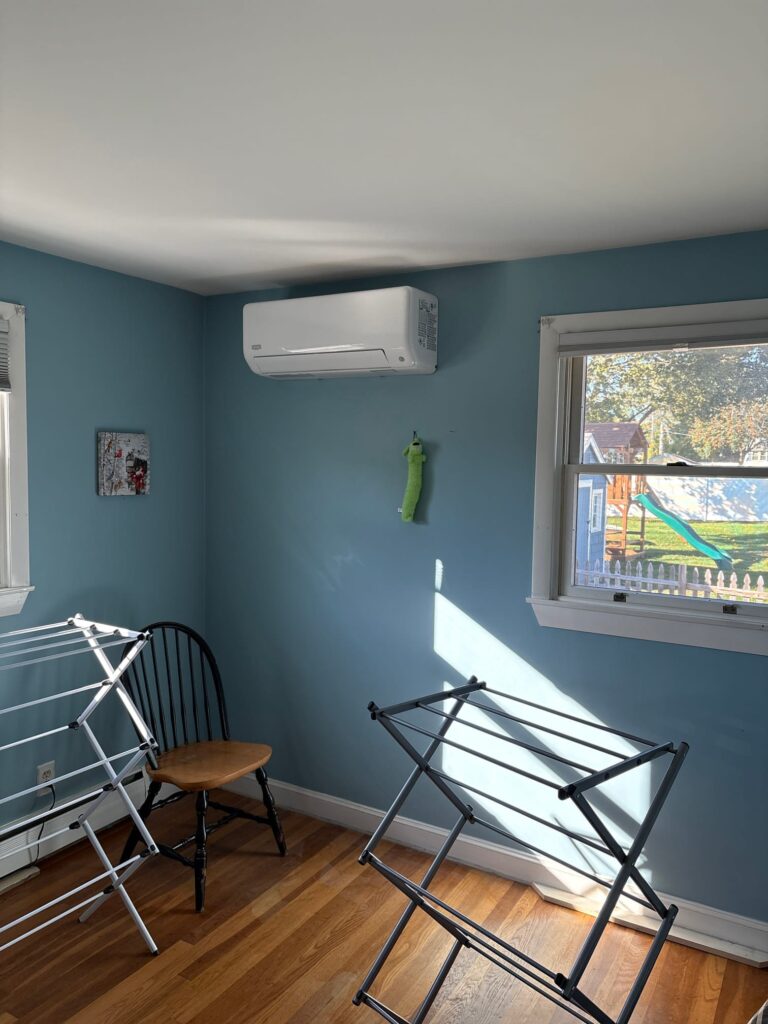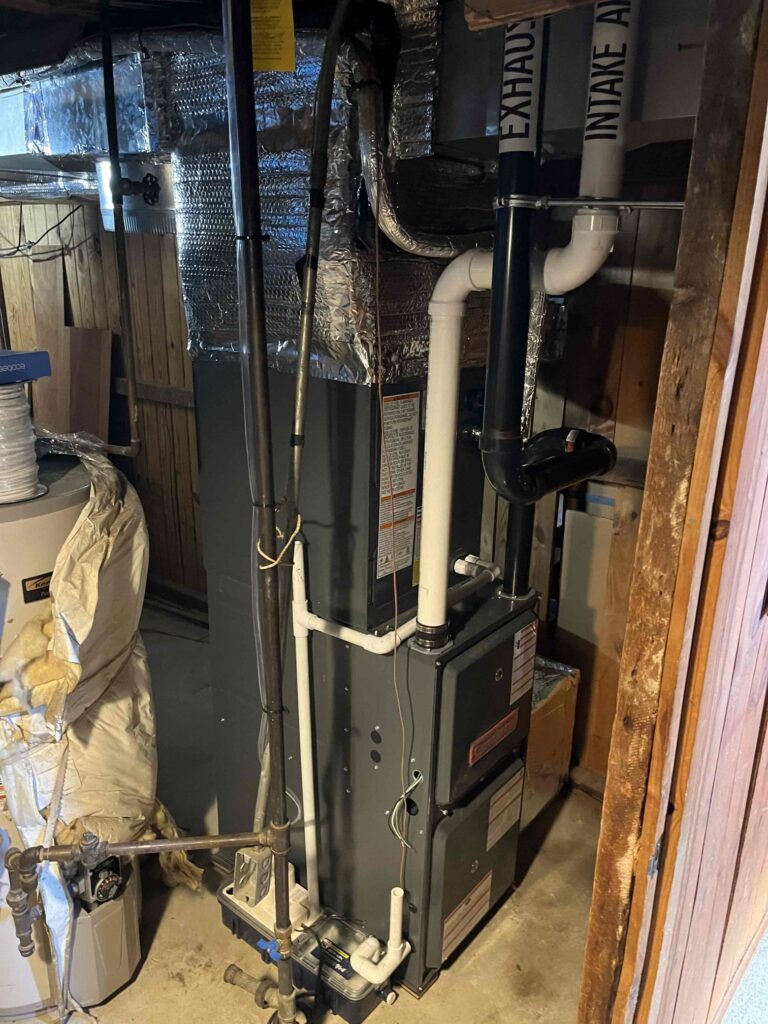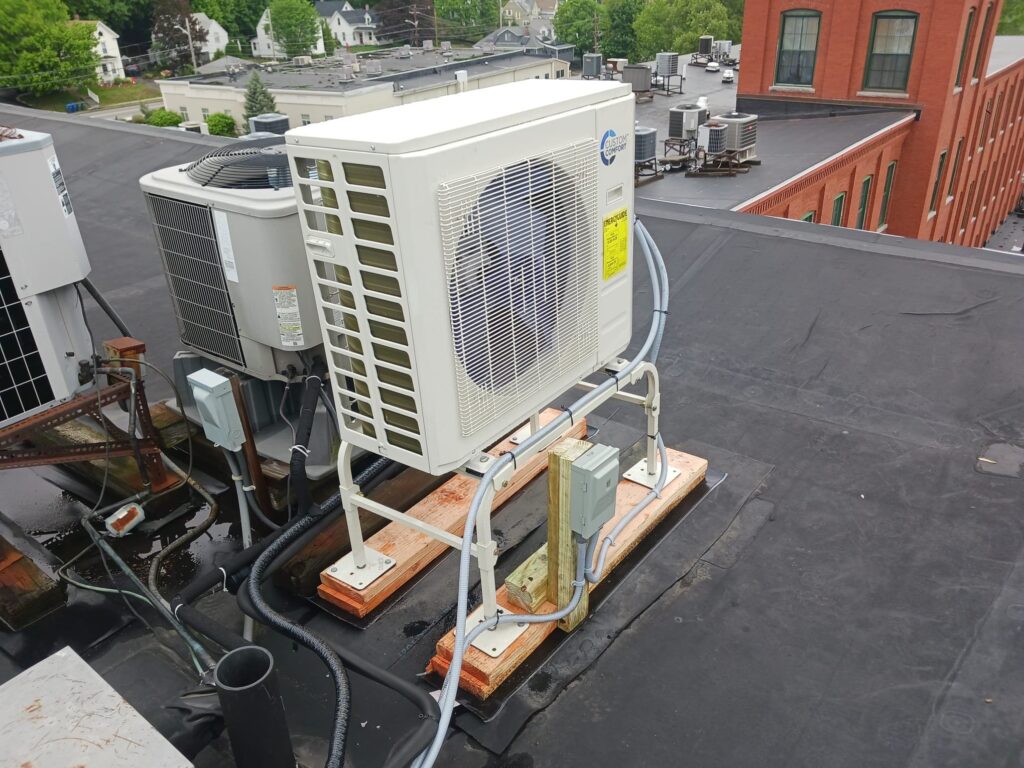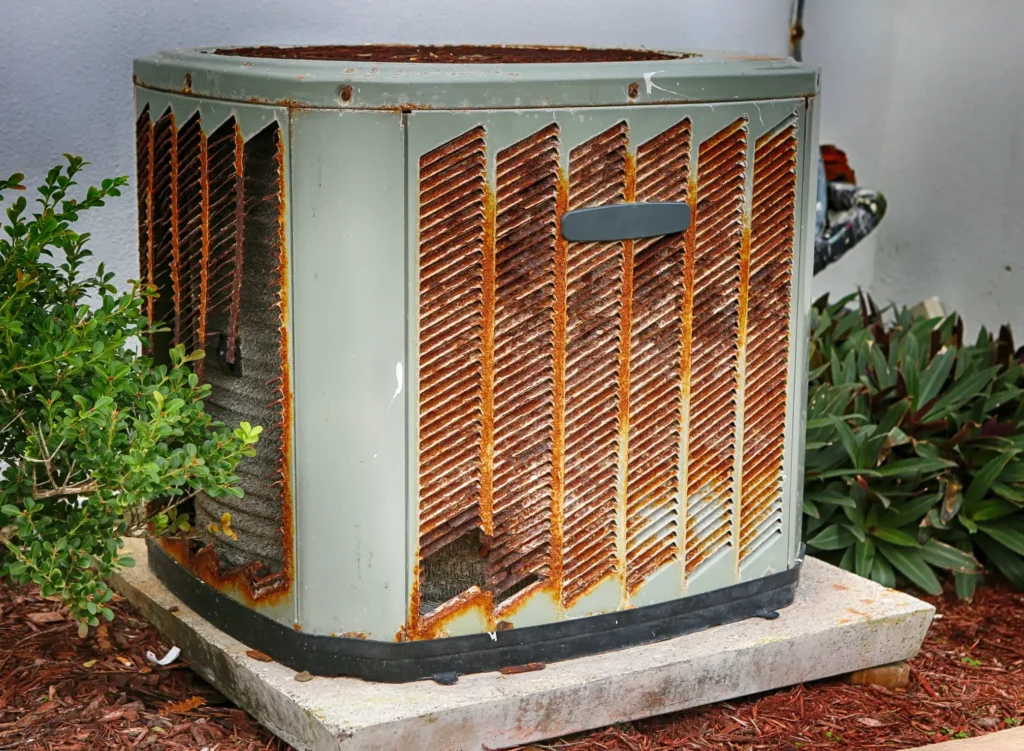Heating oil prices hit families hard across metro Boston. Last winter, we got calls from Needham to Plymouth, Framingham to Reading – homeowners frustrated with $400+ monthly oil bills. Many asked the same question: “Is there a better way?”
After installing heat pumps from Newton to Worcester for decades, I’ve seen firsthand how this decision plays out. Some families cut their heating costs dramatically. Others save modestly but love the year-round comfort. A few regret not making the switch sooner.
Here’s what forty years of installing heating systems in these communities taught me about this choice.
Table of Contents
ToggleUnderstanding the Basics
Oil furnaces burn heating oil to create warm air that travels through your ductwork. These systems have heated Massachusetts homes for generations, especially in areas where natural gas lines weren’t available.
Heat pumps work on a different principle. They pull heat from outdoor air – yes, even during our cold winters – and move it inside. Today’s cold-climate models handle New England weather while providing year-round heating and cooling.
Operating Costs: The Bottom Line
One of the most significant factors homeowners consider is operating cost. Here’s how they compare:
Oil heating costs vary wildly depending on global markets and delivery logistics. In Framingham and Natick, we’ve seen customers pay anywhere from $2.80 to $5.20 per gallon in the same winter. A typical Sudbury colonial burns through 800-1,000 gallons yearly. Do the math – that’s $2,240 to $5,200 just for heat.
Heat pump operating costs depend heavily on your local utility rates and usage patterns. National Grid customers in Newton pay different rates than Eversource customers in Concord. Most of our Lexington installations see annual heating costs between $1,200-$2,800, but your results will depend on how you set your thermostat and your home’s efficiency.
We installed a Mitsubishi system in a 1960s split-level in Northborough last fall. The homeowner’s oil bills averaged $380/month the previous winter. This past winter? $140/month in electricity for heating. But here’s the thing – his neighbor with an identical house saw smaller savings because he kept his old habits of cranking the heat to 75°F.
In Southborough, we replaced an oil system in a drafty 1940s cape. The family expected huge savings but ended up with similar costs. Why? Poor insulation meant the heat pump worked overtime. They’re happy because they finally have central air, but the cost savings didn’t materialize until they air-sealed and insulated through Mass Save.
Environmental Impact
Massachusetts has committed to achieving net-zero emissions by 2050, and your heating system choice plays a crucial role:
Oil Furnaces
- Burn fossil fuel directly in your home
- Produce approximately 22 pounds of CO2 per gallon burned
- Average Massachusetts home produces 13,000-26,000 pounds of CO2 annually from oil heating
Heat Pumps
- Use electricity, which increasingly comes from renewable sources in Massachusetts
- Produce 50-75% fewer emissions than oil systems
- Emissions continue to decrease as the electrical grid becomes cleaner
Performance in Massachusetts Weather
I get this question constantly from Milton and Waltham customers: “Will this thing actually work when it’s 10 below?”
The honest answer: today’s cold-climate heat pumps handle our winters differently than the systems from even five years ago. The Mitsubishi units we install in Reading work down to -13°F. LG models perform well to -5°F. But here’s what the spec sheets don’t tell you – they work harder as temperatures drop.
During the January cold snap that hit 5°F for three straight days, our Concord customers with properly sized systems stayed comfortable. A few with undersized units needed backup heat. That’s why proper sizing matters more than brand names.
Oil Furnace Reliability
- Consistent heat output regardless of outdoor temperature
- Proven performance in extreme cold
- Requires regular oil deliveries and tank monitoring
Installation and Equipment Costs
Heat Pump Installation
- Higher upfront equipment cost: $15,000-$25,000 for whole-home systems
- Mass Save rebates up to $10,000 plus federal tax credits up to $2,000 significantly reduce net cost
- 0% financing available through Mass Save HEAT loans
- Replaces both heating and cooling systems
Oil Furnace Replacement
- Lower upfront cost: $8,000-$15,000
- Limited rebate opportunities
- Still need separate AC system for cooling
- Requires oil tank maintenance or replacement
Important Note About Efficiency vs. Savings
While heat pumps are highly efficient systems (achieving 300-400% efficiency), efficiency doesn’t automatically guarantee cost savings. Your actual savings depend on:
- Current electricity rates in your area
- Fluctuating oil prices
- How you set and use your thermostat
- Your home’s insulation and air sealing
- Local utility rate structures and peak demand charges
Some customers see significant cost reductions, while others may find similar operating costs with improved comfort and environmental benefits.
Maintenance and Reliability
Last year, a customer called panicking because her oil tank sprung a leak in her basement. Emergency cleanup, environmental remediation, new tank – $8,000 before we even talked about the furnace. These situations happen more than people realize, especially with older underground tanks common in Needham and Wellesley.
Heat pump maintenance looks different. We recommend annual cleanings and filter changes every few months. The Sudbury customer with the Bosch system we installed three years ago? He’s had zero issues and spends maybe $300 yearly on maintenance. No oil deliveries, no tank concerns, no cleanup risks.
Comfort and Indoor Air Quality
Heat Pumps
- Consistent, even heating throughout the home
- Built-in air filtration improves indoor air quality
- Quiet operation (outdoor units are whisper-quiet)
- No combustion means no risk of carbon monoxide
Oil Furnaces
- Can create hot and cold spots
- Combustion process can affect indoor air quality
- Requires proper ventilation and carbon monoxide detection
- Some homeowners prefer the “warmer” feel of forced air heating
Real Talk: When Heat Pumps Make Sense (and When They Don’t)
Heat pumps work great if you:
- Live in a reasonably well-insulated home (most Lexington and Concord homes built after 1980 qualify)
- Want year-round comfort without separate AC systems
- Can handle the learning curve of different heating patterns
- Qualify for Mass Save rebates (most do)
Stick with oil if you:
- Have a brand-new, high-efficiency oil system
- Live in a poorly insulated house and can’t afford efficiency upgrades
- Prefer the instant, intense heat that oil provides
- Have unreliable electrical service (rare in our service area)
The bottom line from four decades in this business: most Framingham, Northborough, and Plymouth families who make the switch are happy they did. Not always because of dramatic cost savings – though many see them – but because of improved comfort and peace of mind.
Whether you’re in a Newton Victorian, Framingham ranch, or Worcester three-decker, this decision comes down to your specific situation. We’ve seen successful heat pump installations in 1890s homes and disappointing ones in newer construction – it all depends on the details.
Mass Save rebates up to $10,000 plus federal tax credits up to $2,000 make the upfront investment manageable for most families. Zero-percent financing through Mass Save helps too. But the real question isn’t affordability – it’s whether a heat pump fits your home and lifestyle.
Ready to find out? Endless Energy’s expert technicians will come to your home, look at your current system, check your insulation, and give you straight answers about what to expect. No sales pitch, just honest assessment based on four decades of keeping families comfortable from Reading to Plymouth.
Call us today at 508-213-9451 or schedule a free heating consultation directly our website. Winter’s coming whether you’re ready or not – but at least you can be comfortable when it arrives.





